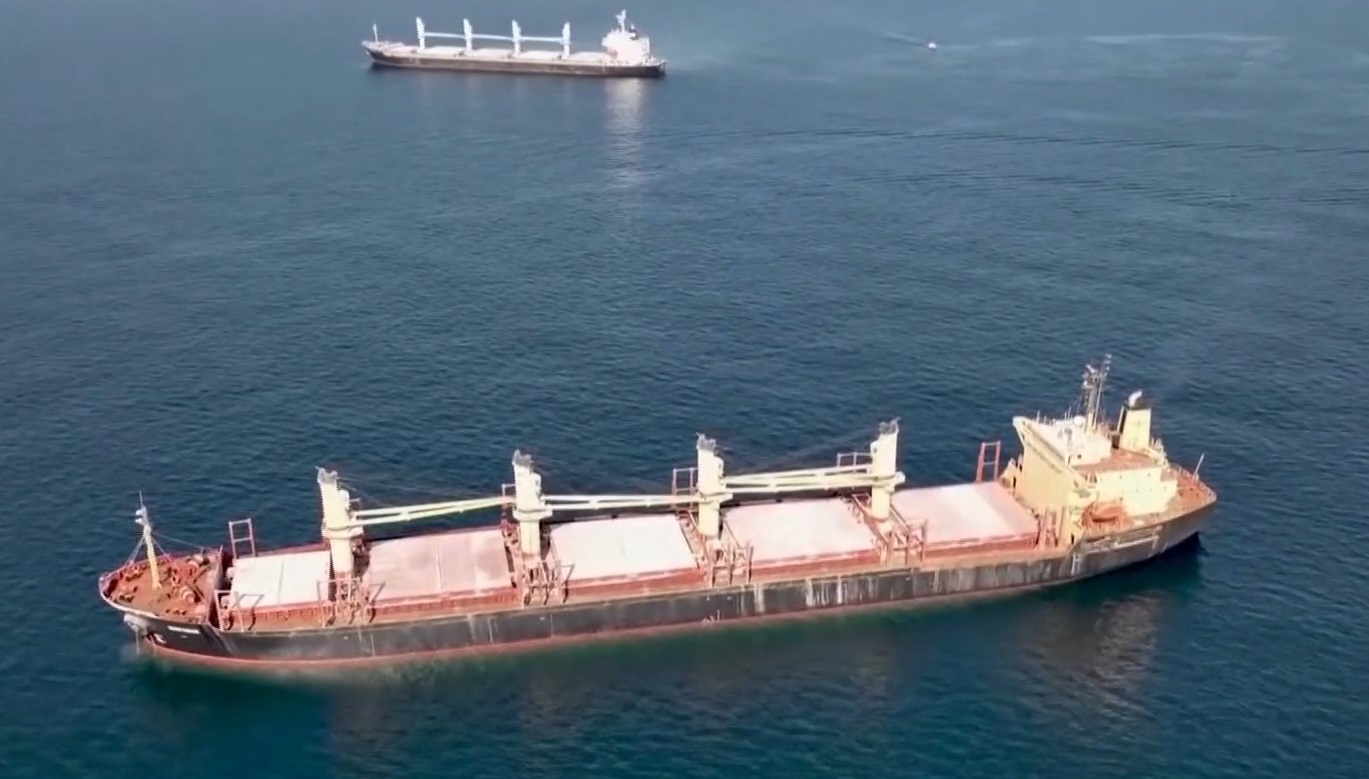Maritime Incident Report: Explosions and Fires Near American Ship South of Aden

Watan-The British Maritime Trade Operations agency, affiliated with the British Army, and the British security firm Ambrey announced that a fire resulting from nearby explosions broke out on board a ship about 57 nautical miles south of Aden, on the southern Yemeni coast southeast of the coastal city of Aden, Yemen.
This incident came after statements made by Masfer Al-Nimir, the Minister of Communications and Information Technology in the internationally unrecognized Houthi militia government, last Monday, in which he stated that ships must obtain a “permit from the Maritime Affairs Authority,” controlled by the Houthis, before entering Yemeni waters.
The United Kingdom Maritime Trade Operations Room (UKMTO), a joint maritime security channel managed by the British Royal Navy, reported on Wednesday that it had received a “report of an incident” in the area.
The private security firm Ambrey stated that an explosion near a ship had been reported, but only few other details were immediately available.
Ambrey reported that a nearby ship had reported the explosion near a bulk cargo carrier owned by the United States, flying the flag of Barbados.
Earlier on Wednesday, the ship received a call from an entity identifying itself as belonging to the Yemeni navy and ordered it to change its course, according to Ambrey.
The maritime security company stated that the ship changed its course thereafter before it began to drift. The Houthis had previously issued orders to change course before attacks and attempted hijackings.
According to CBS News network, this is the latest development in the ongoing shadow war in the waterways of the Middle East, even before the Houthi attacks began.
According to British media reports, the maritime company stated that the U.S.-owned ship was drifting before the suspected attack.
Iran says it has seized a shipment of oil bound for Chevron.
Kuwaiti Crude Oil
Iran, the main supporter of the Houthis, said on Wednesday it would seize a $50 million shipment of Kuwaiti crude oil destined for the American energy company Chevron Corp. The shipment was aboard a tanker seized by Iranian forces nearly a year ago.
The United States has formed an international alliance to protect commercial traffic in the Red Sea region from attacks by Iranian-backed Houthi militants. The Houthis say they are carrying out attacks in solidarity with Palestinians in the war between Israel and Hamas in Gaza.
Ambrey had earlier stated that a container ship had been shelled and issued a distress signal, saying the ship flies the Liberian flag and is owned by Israel, and was en route from Singapore to Djibouti. Neither agency revealed the name of the ship.
UKMTO WARNING INCIDENT 046
UPDATE 001ATTACKhttps://t.co/auxAKdReZU#MaritimeSecurity #MarSec pic.twitter.com/Z16KJaSNZi
— United Kingdom Maritime Trade Operations (UKMTO) (@UK_MTO) March 6, 2024
The company added that the ship was listed as being operated by the Israeli integrated shipping services company ZIM. This might have been an old affiliation, as the ship was not listed in other public sources.
Earlier, Brigadier Sarie, a spokesman for the Houthis, announced that Sanaa forces targeted the Israeli ship “MSC SKY II” in the Arabian Sea with suitable naval missiles, resulting in accurate and direct hits.
The Israeli shipping company ZIM told Reuters it had no connection to the ship.
Ambrey stated that the container ship continued to broadcast an AIS signal after the incident.
Iran announced the seizure of the oil on board the Advantage Sweet ship in a statement carried by the Meezan news agency, run by the judiciary in the Islamic Republic.
Commando forces
Iranian commando forces landed on the ship in late April 2023, which Iran claimed had collided with another ship, without providing any evidence.
Meezan Agency said this was part of a court order regarding U.S. sanctions that Iran claimed prevented the import of a Swedish drug used to treat patients suffering from epidermolysis bullosa, a rare genetic condition causing blisters to appear all over the body and eyes. The various reasons for the seizure have not been reconciled.
Iran has made claims about other seizure operations that later collapsed when it became clear that Tehran was trying to leverage the seizures as bargaining chips with foreign countries.
Since November, rebels have frequently targeted ships in the Red Sea and surrounding waters during the war between Israel and Hamas. These ships have included at least one carrying goods bound for Iran, the main donor to the Houthis, and a relief ship bound later to the territories controlled by the Houthis.






